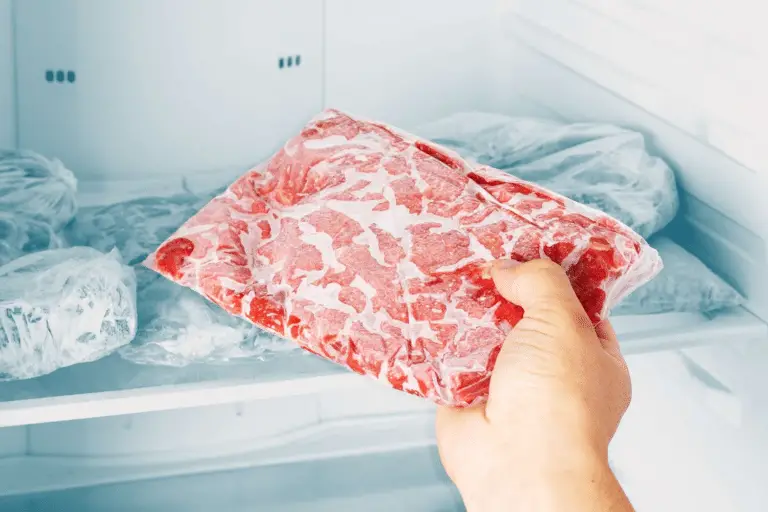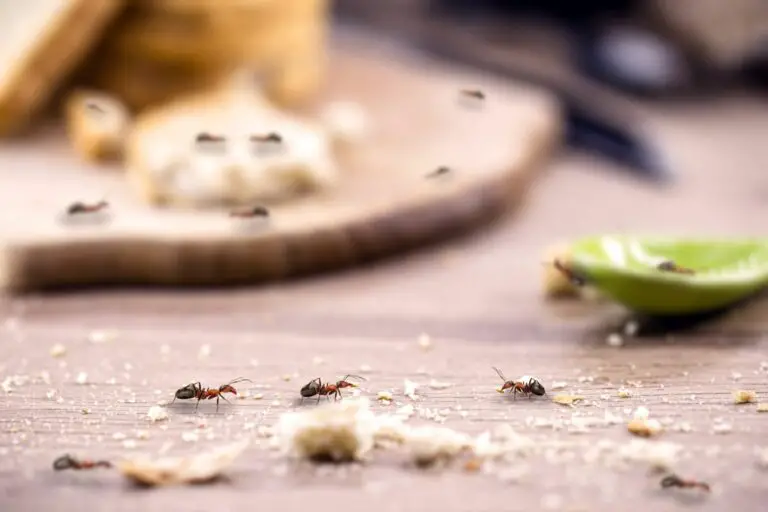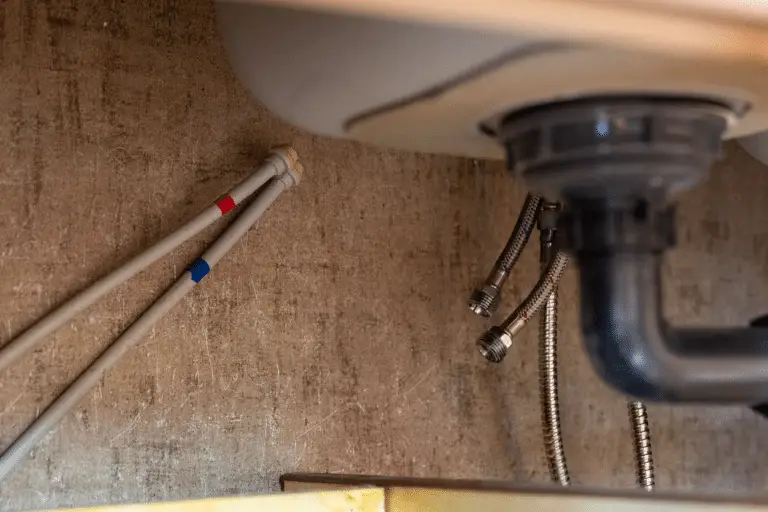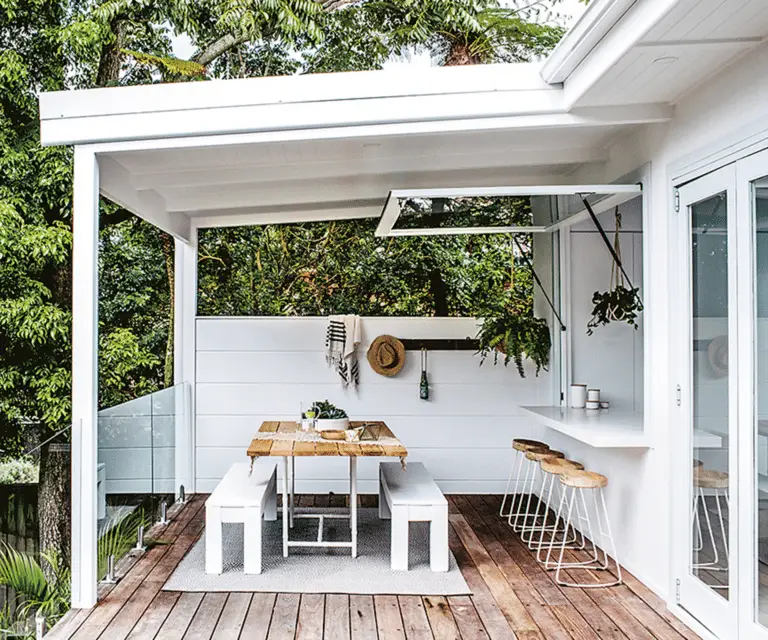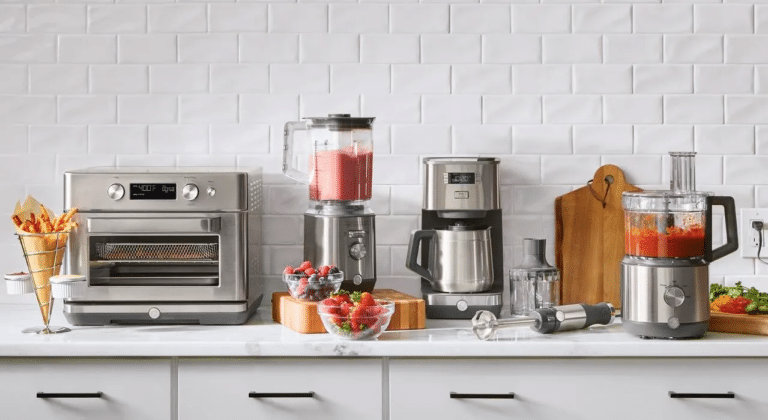Ever wondered why your kitchen sink is leaking? From worn-out seals to broken pipes, there could be a variety of reasons causing this common household problem.
In this blog post, we’ll dive into the different forms of leakage, common causes like corroded valves, and immediate measures to take when you discover a leak. Whether you’re a DIY enthusiast or need to call in a professional plumber, we’ve got you covered on how to handle that pesky leak in your kitchen sink.
Let’s get started!
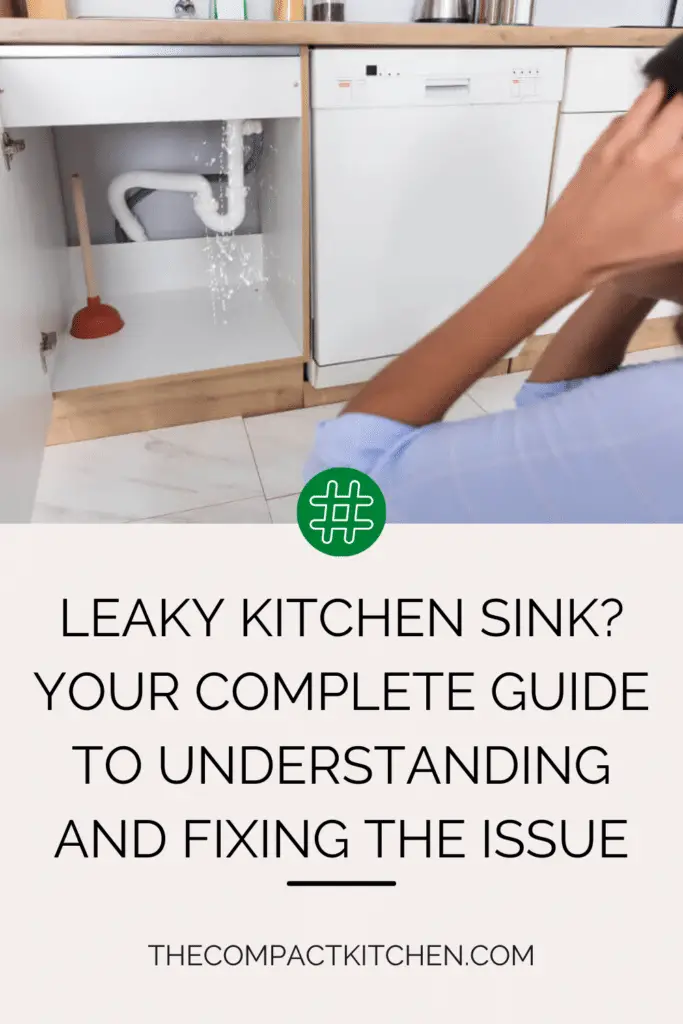
Understanding The Problem: Why is My Kitchen Sink Leaking?
So, you’ve noticed something fishy going on with your kitchen sink. Maybe you’re seeing water where it shouldn’t be or hearing that dreaded drip, drip, drip. Whatever the case, it’s important to get to the bottom of why your kitchen sink is leaking before things get out of hand. Let’s dive in and explore why this might be happening.
Differentiating between various forms of leakage
First things first, it’s key to understand that not all leaks are created equal. Leakage from the faucet might have a different cause than a leak coming from the drain. By pinpointing where the leak is originating from, you can start to narrow down the possible culprits.
Recognizing the initial signs of leaks to prevent damage

Being proactive is key when it comes to dealing with kitchen sink leaks. By keeping an eye out for early warning signs like water stains, mold growth, musty odors, or a sudden increase in your water bill, you can catch leaks before they escalate into a major issue.
By understanding the different types of leaks and knowing what to look for, you can take the first step towards getting your kitchen sink leak under control.
Common Causes of Kitchen Sink Leaks
When faced with a leaking kitchen sink, it’s essential to identify the root cause of the issue. By understanding the common causes of kitchen sink leaks, you can take the necessary steps to address the problem effectively.
Potential Sources of Leaks
There are several potential sources of leaks in a kitchen sink, with the most common being the faucet, the drain, or the supply lines. These components are prone to wear and tear over time, leading to leaks if not properly maintained.
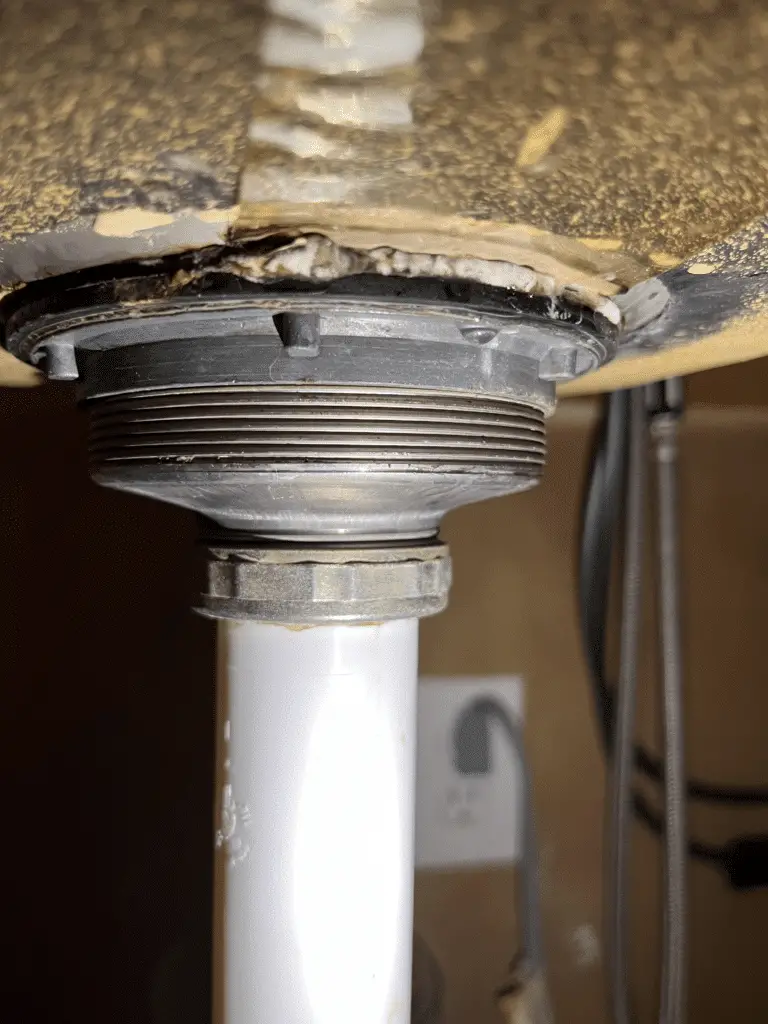
Leaking faucets are often caused by worn-out seals or O-rings. As these components deteriorate, water can seep through, causing a constant drip. It’s important to address this issue promptly to prevent further water wastage and potential damage to the surrounding area.
Another common source of leaks is the drain. Over time, debris and residue can build up, causing clogs that may lead to leaks. Regularly cleaning the drain and ensuring proper installation can help prevent this issue.
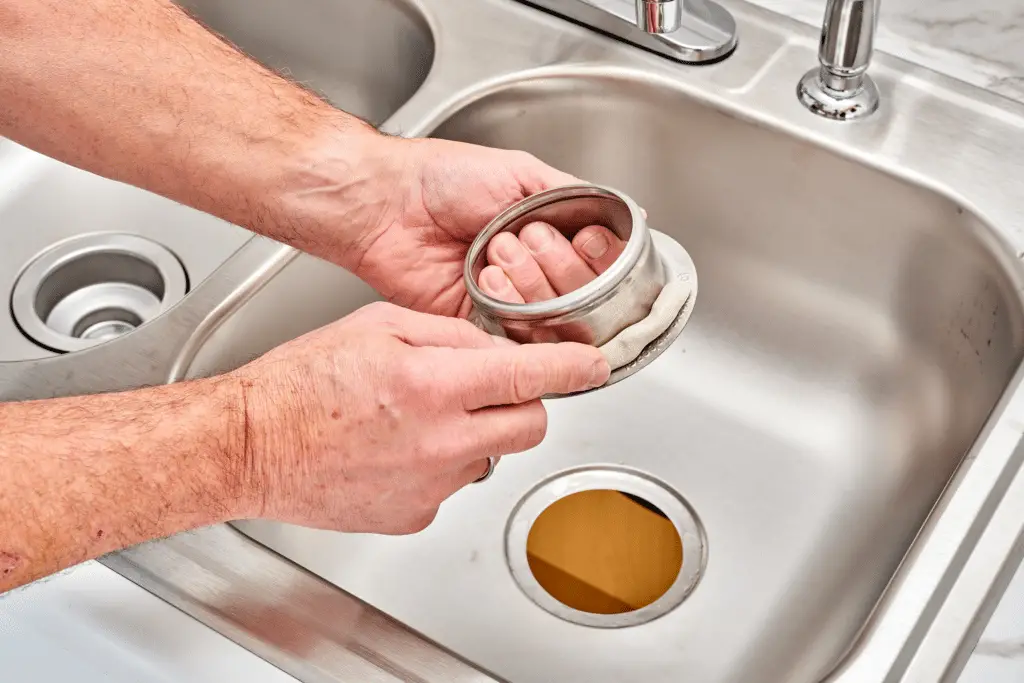
Supply lines, which connect the sink to the water source, can also be a culprit in kitchen sink leaks. Corroded valves or loose connections can result in water seepage. Inspecting these components regularly and replacing any damaged parts can help prevent leaks.
Common Reasons for Leaks
Aside from specific components, there are common reasons why kitchen sinks may develop leaks. Worn-out seals and gaskets are a frequent cause of leakage, especially in older faucets. These components can deteriorate over time, leading to water seepage.

Corroded valves are another common reason for leaks in kitchen sinks. The constant exposure to water can cause metal valves to deteriorate, resulting in leaks. Regularly checking and replacing these valves can help prevent leaks.
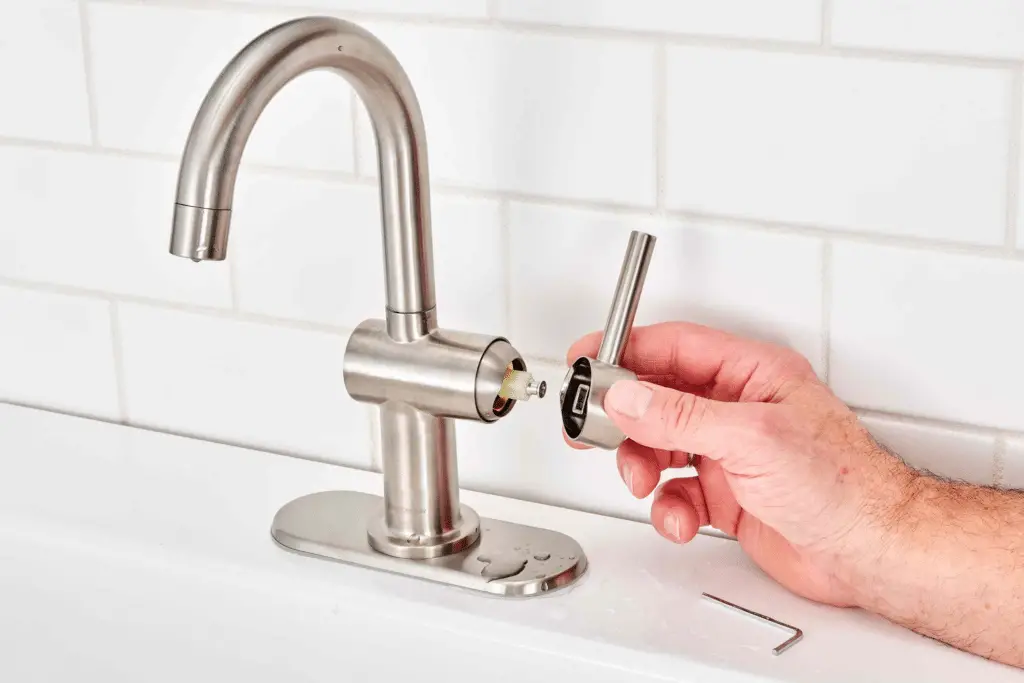
Broken pipes are a more severe cause of leaks in kitchen sinks. If a pipe becomes cracked or damaged, it can lead to significant water leakage. Identifying and repairing broken pipes promptly is crucial to prevent water damage to your home.
By understanding the potential sources and common reasons for kitchen sink leaks, you can take proactive measures to address the issue and prevent further damage. Regular maintenance and inspection of your sink’s components can help you identify and fix leaks before they escalate into more significant problems.
Immediate Measures to Take When Discovering a Leak
Discovering a leak in your kitchen sink can be a stressful situation, but it’s essential to act quickly to prevent further damage. Taking immediate measures can help minimize water damage and ensure the safety of your home. Here are some steps to take when you discover a leak in your kitchen sink.
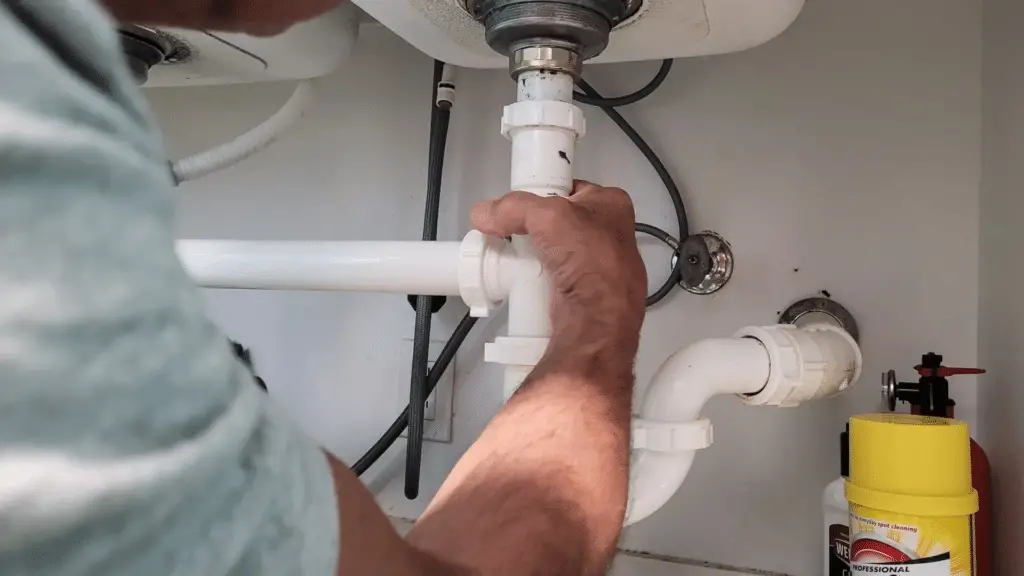
The first and most crucial step to take when you discover a leak in your kitchen sink is to shut off the water supply. This will help prevent the leak from getting worse and causing more damage to your home. Locate the shut-off valve under the sink or near the water main and turn it off immediately. If you cannot find the shut-off valve or do not know how to turn it off, contact a plumber for assistance.
Checking for Water Spreading
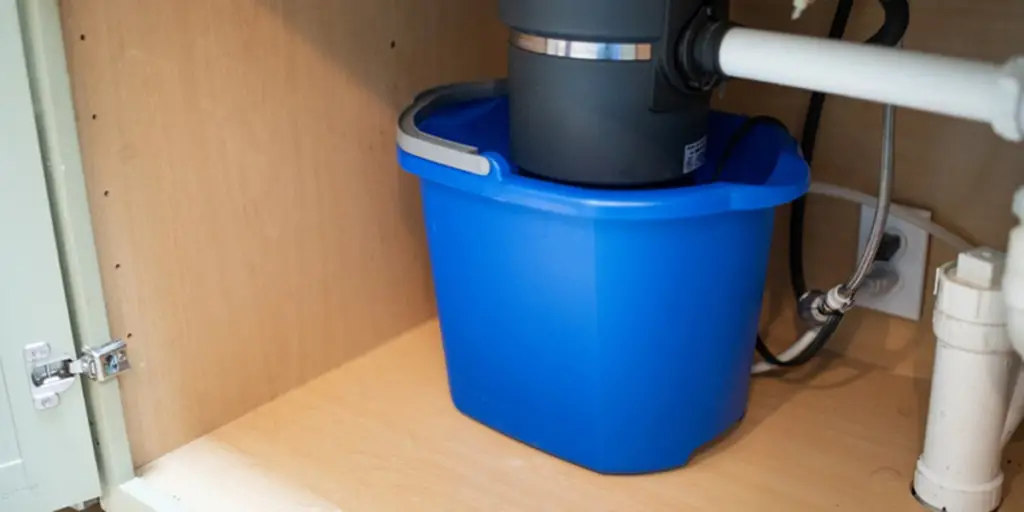
After you have shut off the water supply, it’s essential to check for any water that may have spread to electrical appliances or other areas of your home. Water can cause serious damage to electrical systems and pose a safety hazard. Make sure to thoroughly inspect the area around the sink, under cabinets, and on the floor for any signs of water damage. If you notice water spreading to electrical appliances, unplug them immediately and contact a professional electrician for assistance.

Taking these immediate measures when discovering a leak in your kitchen sink can help prevent further damage and ensure the safety of your home and family. Remember to shut off the water supply and check for any water spreading to electrical appliances to minimize the impact of the leak. If you are unsure how to handle the situation or need assistance, don’t hesitate to contact a professional plumber for help.
How to Fix a Kitchen Sink Leak Yourself
Discovering a leak in your kitchen sink can be quite frustrating, but fear not! There are simple do-it-yourself fixes that you can try before calling in the professionals. By following a few straightforward steps and taking the necessary precautions, you may be able to resolve the issue yourself.
Identifying the Issue
The first step in fixing a kitchen sink leak yourself is identifying the source of the problem. Common areas where leaks occur include the faucet, the drain, and the supply lines. Take a close look at each component to see if you can spot any signs of damage or wear and tear.
If you notice water pooling around the base of the faucet or dripping from the handles, the issue may be with the faucet itself. Similarly, if water is leaking from the drain or the pipes underneath the sink, you may have a problem with the drain or supply lines.
DIY Fixes

Once you’ve identified the source of the leak, you can proceed with the appropriate DIY fix. For a leaking faucet, you may need to replace the worn-out seals or O-rings. You can find replacement parts at your local hardware store and follow instructional videos online to guide you through the process.
If the leak is coming from the drain or supply lines, you may need to tighten the connections or replace corroded valves. Remember to turn off the water supply before attempting any repairs to prevent further damage.
Tools and Safety Measures
Before you start fixing the leak, make sure you have the necessary tools on hand. A wrench, plumber’s tape, and replacement parts are some of the items you may need depending on the nature of the repair. Additionally, wear protective gear such as gloves and goggles to prevent injuries.
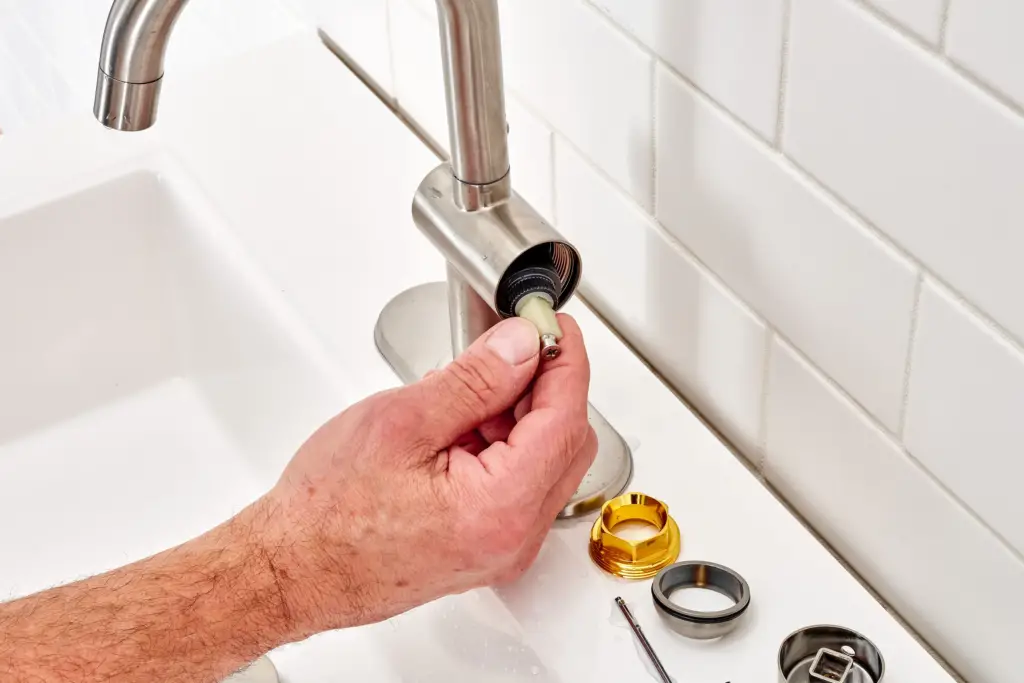
When working on plumbing repairs, always exercise caution and follow safety guidelines. Turn off the power to any electrical appliances in the vicinity to avoid the risk of electric shock. If you’re unsure about how to proceed or encounter any complications, don’t hesitate to seek professional help.
By following these simple steps and taking the necessary precautions, you may be able to fix a kitchen sink leak yourself. Remember to stay calm and approach the situation with confidence. With a little effort and patience, you can resolve the issue and prevent further water damage in your home.
When to Call a Professional

While some minor kitchen sink leaks can be fixed with a DIY approach, there are certain situations where it is best to call a professional plumber. Understanding the limitations of your own skills and the potential for more damage if not handled correctly is crucial in making this decision.
Signs of a Severely Leaking Sink
If you notice any of the following signs, it is advisable to seek the help of a professional:
- Constant dripping or pooling of water under the sink
- Water stains or musty odors in the cabinets below the sink
- Visible mold or mildew growth around the sink area
These signs could indicate a more severe leak that requires specialized knowledge and tools to repair properly. Ignoring them can lead to extensive water damage, compromising the structural integrity of your kitchen.
Professional Expertise and Equipment
Professional plumbers have the expertise and specialized equipment necessary to diagnose and fix complex leaks efficiently. They are trained to identify the root cause of the problem and implement lasting solutions that prevent future leaks.
By hiring a professional, you can have peace of mind knowing that your kitchen sink leak will be handled with precision and care. This can save you time, money, and the hassle of attempting repairs that may not fully resolve the issue.

Additionally, professional plumbers can provide valuable advice on leak prevention and maintenance strategies to keep your kitchen sink in optimal condition for years to come.
While it may be tempting to tackle a kitchen sink leak on your own, knowing when to call a professional is essential for safeguarding your home and ensuring the problem is addressed effectively.
Wrap It Up: Don’t Let Your Troubles Leak Away!
Leaky kitchen sinks can be a real hassle, but with the right knowledge and quick action, you can prevent a small drip from turning into a big problem. Remember to stay vigilant for any signs of leakage, know when to DIY and when to call in the pros. Your sink will thank you for it!


